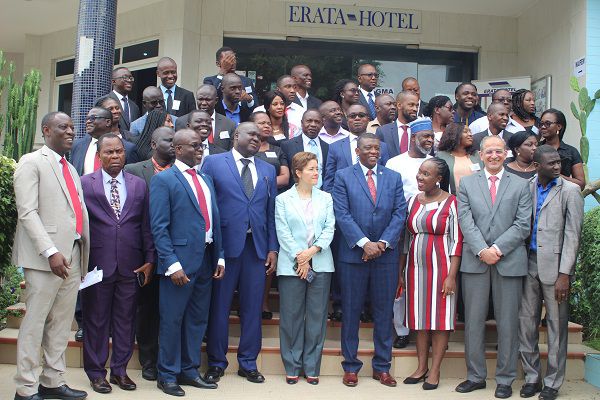
Sub-regional course on reliable data on trade, services begins in Accra
Technocrats in state institutions in West African countries have begun a course to build their capacity on how to keep reliable and comprehensive data on trade and services.
The participants are also expected to learn about data sources and techniques for compiling statistics on international trade on goods and services.
The one-week programme, which started in Accra yesterday, is dubbed: "Regional course on international trade in goods and services statistics".
Forty participants, mainly from the Finance ministries, statistical services and trade-related state institutions of countries in the West African sub-region, are participating in the course.
The countries are Ghana, Nigeria, Liberia, Cote d'Ivoire, Burkina Faso, Senegal, The Gambia and Sierra Leone.
Ghanaian participants in the course are drawn from the ministries of Finance and Trade and Industry, the Ghana Statistical Service (GSS), the Bank of Ghana (BoG) and the Ghana Export Promotion Authority (GEPA).
The course is organised by the West African Institute for Finance and Economic Management (WAIFEM), in collaboration with the International Monetary Fund (IMF).
Focus
The Director-General of WAIFEM, Dr Baba Y. Musa, said the course would focus on challenges in compiling statistics in areas such as manufacturing, insurance, financial services and construction.
He said it would also cover other areas such as transport services, travel and links to satellite accounts on tourism, insurance and pension services, charges for the use of intellectual property and digital trade compilation challenges.
"The course will address specific aspects of how data in these sectors are treated and how they are recorded in balance of payments.
Participants will have the opportunity to discuss compilation problems they encounter and gain insights into the analytical uses of statistics in international trade on goods and services," he added.
Dr Musa urged the participants to take advantage of the opportunity offered them to draw useful lessons that would help deepen service delivery in international trade on the continent.
Significance
In a speech delivered on his behalf, the Governor of the BoG, Dr Ernest Addison, described the organisation of the course as timely and said it would help countries in the sub-region provide quality data in the services sector.
He said reliable data was a key requirement for economic and industrial development.
“The service sector plays an important role in all modern economies and activities in the sector need constant monitoring because a resilient service sector will help boost economic growth,” he added.
He observed that although there had been significant contribution by the service sector to economic growth, the impact had been minimal because of the absence of reliable data on that sector.
“The sub-region is saddled with challenges such as complex state taxes, barriers to trade, inefficient transport and communication systems, hindrances at the borders, currency and legal differences and language barriers.
“I expect these issues to run through your discussions, so that practical solutions can be found to address them,” he said.
According to Dr Addison, it was important for countries in the sub-region to make concerted efforts to build capacity and robust regimes to promote international trade.
